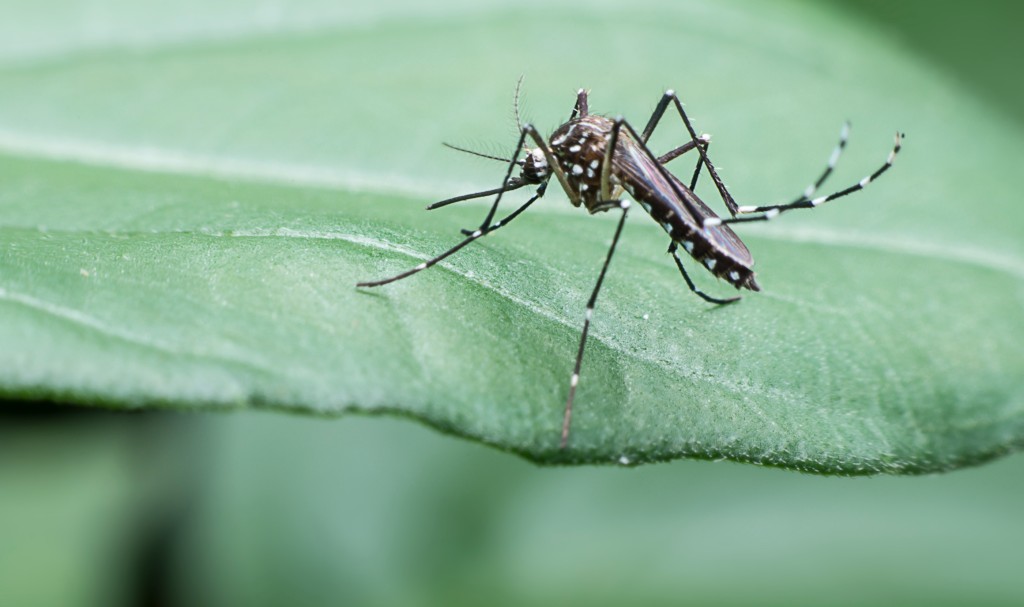AsianScientist (Dec. 03, 2024) – Vaccination remains one of the most effective public health measures in curbing disease. Consistent vaccination efforts successfully reduced mortality from illnesses across malaria to measles, which once claimed many lives in vulnerable populations. Indeed, vaccination is estimated to have contributed to about 40 percent of the decline in infant mortality rates since 1974. However, vaccine hesitancy, as well as misinformation, have fueled the unnecessary resurgence of diseases like measles—which were once under control—underscoring the ongoing need for strong vaccination coverage and education to safeguard public health.
Dengue, a mosquito-borne illness, has emerged as a new vaccine-preventable threat, evolving from a tropical disease to a major global burden. The World Health Organization (WHO) highlighted this shift in 2023 by putting a spotlight on significant spikes in dengue cases across Southeast Asia in the first half of 2024.
Managing dengue has traditionally relied on a combination of personal protection measures, vector control strategies and community engagement efforts. While methods like fogging to destroy mosquito breeding sites and the World Mosquito Program’s Wolbachia method have achieved some positive impact, they now struggle to keep pace with the disease’s rapid spread.
Dion Warren, Area Head of India and Southeast Asia, and Dr Choo Beng Goh, Head of Medical Affairs for the same region, share with Asian Scientist Magazine how Takeda is tackling this global health threat head-on through a comprehensive and collaborative approach to dengue prevention, management and control.
1. What should we do differently to manage dengue in today’s environment?
Dr Goh: We need to address the growing influence of climate change, which is expanding the breeding grounds of the Aedes aegypti mosquito, the breed known to spread dengue. Warmer temperatures and changing weather patterns are allowing mosquitoes to spread beyond tropical areas, where dengue was traditionally more common. Dengue is no longer confined to tropical regions and has now been recorded in countries where it had been previously unseen. Rapid, unplanned urbanization is also a key contributor. In places where water supply is unstable, people may resort to storing water improperly, and without proper waste management systems, mosquitoes can easily breed in discarded waste.
Controlling dengue has become a more complex challenge. Community or self-protection measures alone have limited effectiveness in curbing outbreaks, especially in densely populated areas. Innovative dengue control methods, such as vaccines, should be incorporated to strengthen existing integrated management approaches and broaden protection where conventional methods may face limitations. Vaccines, along with technological advancements like artificial intelligence (AI), are becoming crucial in dengue control.
The potential of AI to enhance surveillance systems, help predict outbreaks and enable more efficient resource allocation through the use of big data analytics can make our response to dengue timelier and more targeted. Innovations and technological advancements alone would not make an impact without strong coalitions and collaborations. To effectively manage dengue, we must unite all stakeholders—governments, healthcare providers, regional and global organizations, ensuring a coordinated and sustainable impact.
2. How will vaccines impact communities afflicted with dengue?
Dr Goh: Dengue vaccination has the potential to significantly impact communities afflicted with dengue. It can help to protect individuals who have never had dengue before and even those that have had dengue previously, reduce the disease burden, lower hospitalization rates, and ease both the economic and healthcare strain caused by outbreaks.
Complementing current vector management methods with safe and effective vaccinations could therefore contribute to enhancing protection against dengue. Earlier this year in May, the WHO’s Strategic Advisory Group of Experts (SAGE) recommended Takeda’s dengue vaccine for introduction in countries with high dengue burden and high transmission intensity to maximize public health impact. This endorsement from a leading global health body highlights the critical role of vaccination as part of a broader and integrated strategy to tackle the global threat of dengue.
3. How can vaccination be integrated into a country’s greater dengue management strategy? Why is this important?
Dion: While a safe and effective vaccine is essential in combating dengue, it is equally vital to ensure that the vaccine is embedded in a wider, integrated strategy encompassing prevention, disease education, awareness and monitoring. Ensuring accessibility for communities most in need through multi-stakeholder collaboration is also crucial. This should always be accompanied by a well-designed communication strategy and robust community engagement, aligned with the WHO’s recommendation.
- In India and Southeast Asia, we have been supporting the launch of multiple integrated dengue management and educational programs organized in collaboration with government agencies, medical societies, non-profit organizations, community organizations as well as private entities.
- In Indonesia, Takeda joined hands to establish a joint coalition called KOBAR Lawan Dengue, supported by ministries, institutions, state governments, professional bodies and private sectors. The goal is to strengthen stakeholder commitment to dengue control efforts in Indonesia by increasing awareness and education amongst the public and creating sustainable action to overcome the dangers of dengue in the country.
- In Thailand, we partnered with 11 public and private organizations to sign the Dengue-Zero Memorandum of Understanding (MOU) which aims to promote knowledge about dengue, develop and extend an effective prevention system to control dengue in Thailand, and strengthen community-led actions for dengue control.
- In Malaysia, we supported the formation of Dengue Prevention Advocacy Malaysia (DPAM), the country’s first independent dengue prevention group. DPAM focuses on healthcare professional education, public awareness, local research and policy recommendations to combat dengue.
- In Vietnam, an MOU was signed between Takeda and the Vietnam Vaccine Joint Stock Company (VNVC) as part of an initiative to raise awareness about the threat of dengue among the medical community and public.
- In India, we joined the United States Agency for International Development (USAID), the Embassy of Japan, India Vector Control representative and more than 80 partners in the Sustainable Action for Climate Change (SACH) initiative. Together, we launched a dengue prevention campaign in three Indian states to educate schoolchildren and communities on practices to reduce the spread of vector-borne diseases.
4. What challenges can be expected when rolling out a new vaccine? How can they be mitigated?
Dion: In this digital age, the spread of misinformation that can increase vaccine hesitancy is a very real issue. Take the COVID-19 pandemic, for instance, where misinformation and conspiracy theories spread like wildfire via social media, impacting the speed and breadth of vaccine use.
As cases of dengue continue to rise in Asia, it is evident that existing measures are no longer enough to protect the entire population. Stemming misinformation requires working closely with national agencies, healthcare professionals and advocacy groups in the medical community to provide clear and digestible information on the risks of dengue and the potential protection offered by the vaccine based on clinical trial results.
On the other hand, strategic partnerships are key to accelerating the implementation of comprehensive and sustainable dengue prevention strategies, including vaccination. For instance, our partnership with Biological E. Limited, a leading vaccine and biologics company in India, helps to scale up production of Takeda’s dengue vaccine to potentially 50 million doses annually, with the goal of reaching 100 million doses annually within the decade. It is aimed at ensuring a sustainable global supply of the vaccine, supporting our efforts to accelerate access in dengue-endemic regions.
5. What are your hopes for the future of dengue management?
Dion: Takeda is focused on making a real impact in reducing the global dengue burden, in partnership with local communities and organizations within public and private sectors. With dengue continuing to be a significant global public health challenge, our goal is to provide a safe and effective vaccine to protect people in endemic regions and travelers. We are committed to supporting the WHO’s goal of zero dengue by 2030, which requires more than just vaccines. It also involves working on integrated strategies for better dengue prevention, management and control. Collaborating with national agencies, health authorities, healthcare professionals, NGOs and other partners is crucial to making this happen and driving real change.
Reach out to Takeda to learn more about its efforts in global vaccine development and manufacturing to advance a pipeline of vaccines to help address some of the most pressing public health needs like dengue, COVID-19 and pandemic influenza.
—
Source: Takeda ; Image: Pixabay, Takeda
Disclaimer: This article does not necessarily reflect the views of AsianScientist or its staff.

